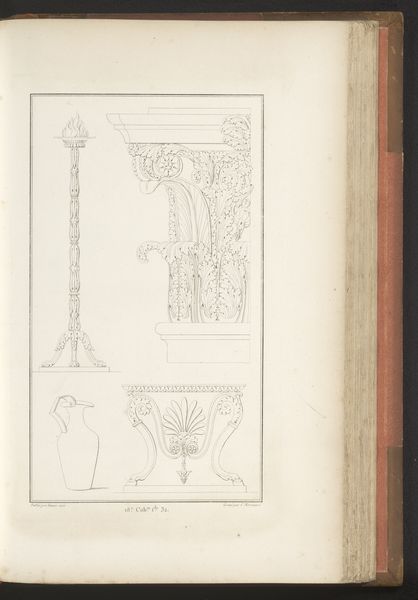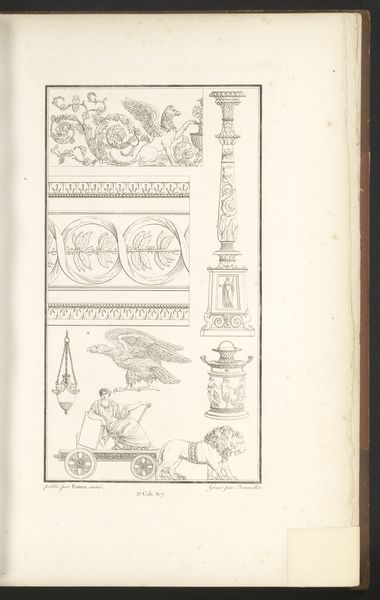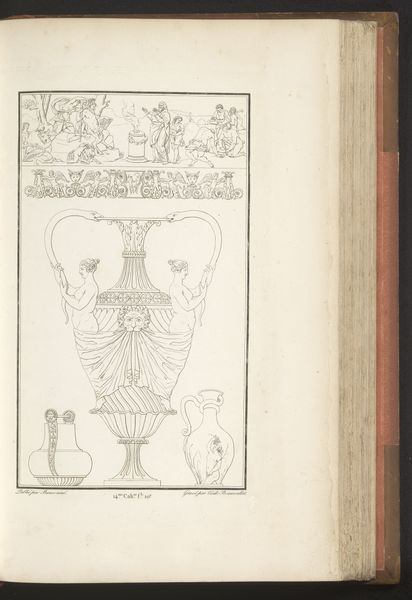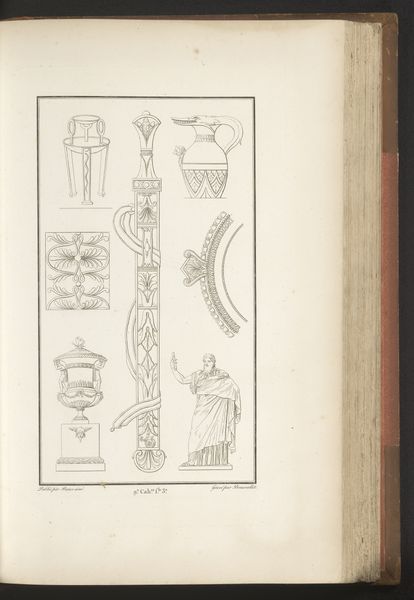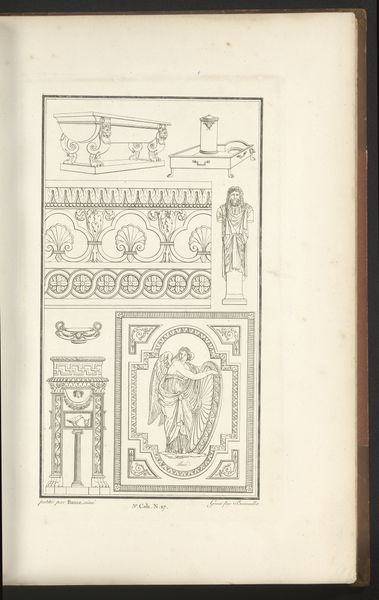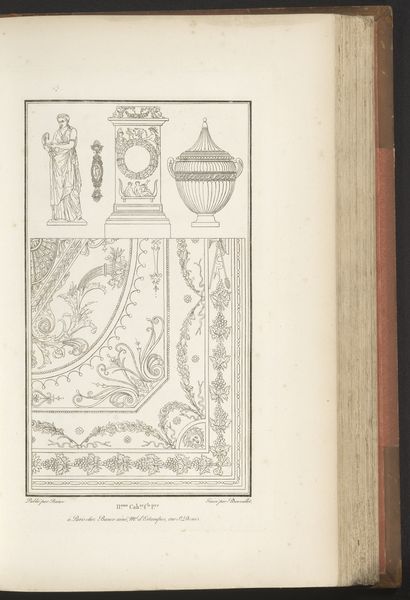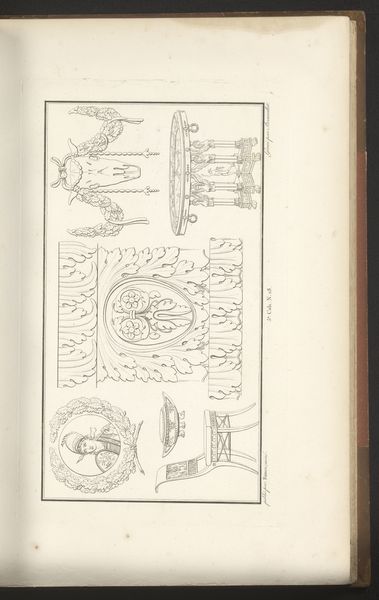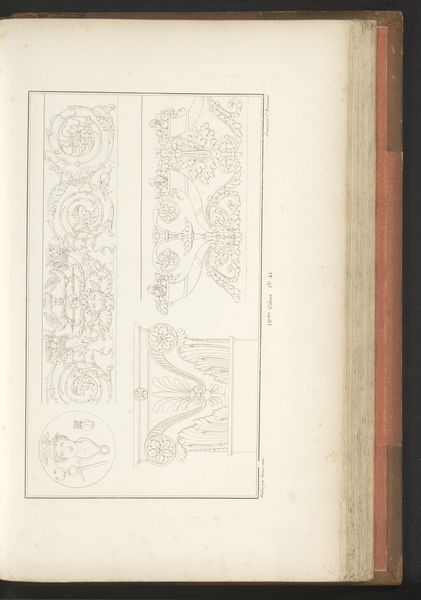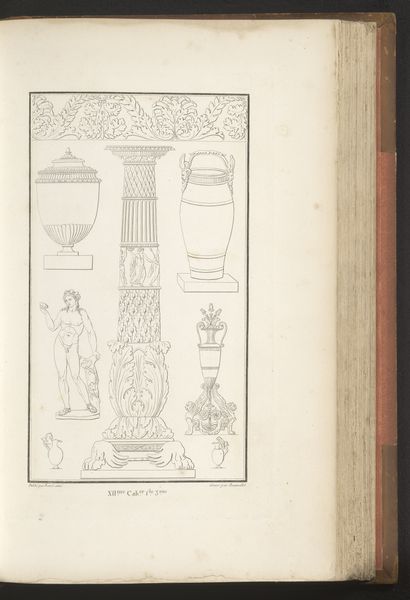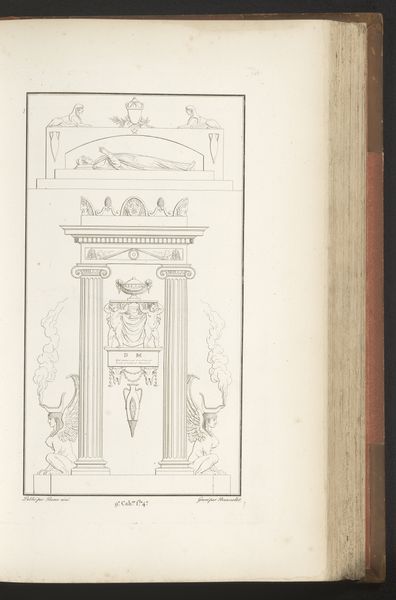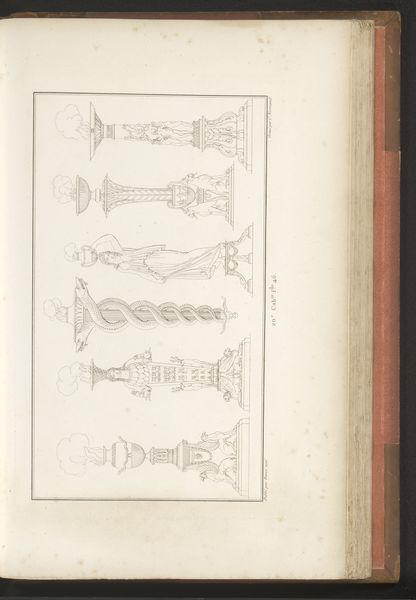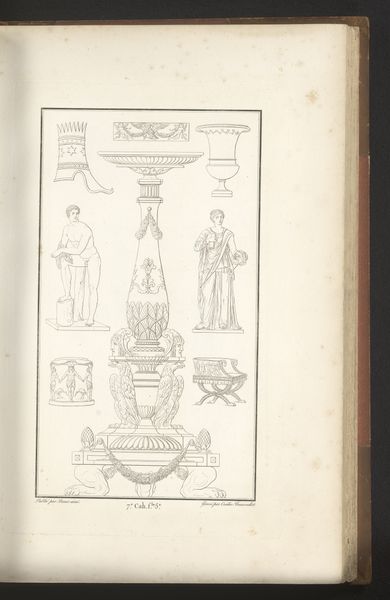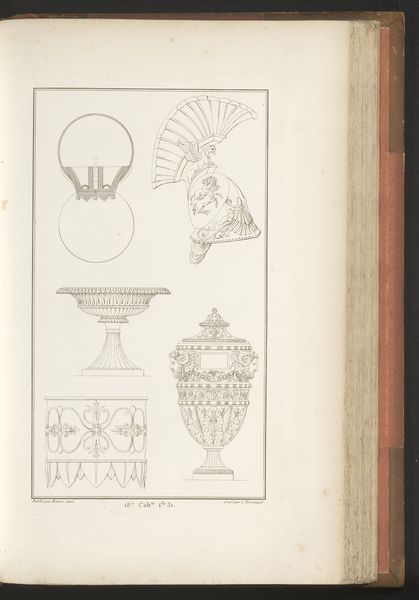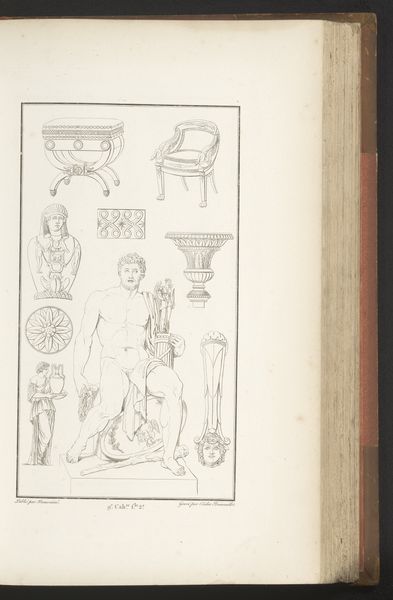
drawing, paper, pencil
#
drawing
#
neoclacissism
#
figuration
#
paper
#
form
#
geometric
#
pencil
#
line
#
academic-art
Dimensions: height mm, width mm
Copyright: Rijks Museum: Open Domain
Curator: Allow me to draw your attention to a drawing titled "Griffioenpoot," which translates to "Griffin's Paw," crafted around 1820 by Pierre-Nicolas Beauvallet. It's a neoclassical pencil drawing on paper. Editor: My initial impression? A sense of grandeur meticulously mapped out. Even in pencil, the ambition shouts. Like an architect’s dream sketched onto the page. Curator: The Griffin, a creature of potent symbolism, representing strength and vigilance. In many cultures, its parts signify a union of earthly and heavenly power—lion and eagle combined. It is quite common to see it during Neoclassicism, when this imagery gained prominence. Editor: Right. And it's not just the griffin – every element feels plucked from antiquity, imbued with some lofty ideal. You have candelabras reaching for light, sculptural fragments. All frozen mid-pose in that elegant neoclassical line work. It does feel like a blueprint of a new empire… on paper. Curator: Neoclassicism often sought to resurrect what was considered to be the pure forms and ideals of the classical era. It isn't merely imitation; Beauvallet’s study hints at how historical motifs become tools for a very different, more recent social and political dialogue. Editor: I’d love to see this freed from the page. Enlarged tenfold, cast in marble. It could actually live again, in three dimensions! It makes you consider the psychological comfort of these familiar symbols for a society then. Something to aspire to or to look up to. Curator: Yes, though drawings like these are very useful records of the way ancient artworks have been received throughout time and sometimes provide valuable insight in artworks whose significance may have otherwise been overlooked. Editor: Exactly, and that initial dream, translated into sketches… That's a wonderful bridge in time we've just walked over. Thank you! Curator: A worthwhile path indeed, highlighting the enduring strength of symbols across time.
Comments
No comments
Be the first to comment and join the conversation on the ultimate creative platform.
